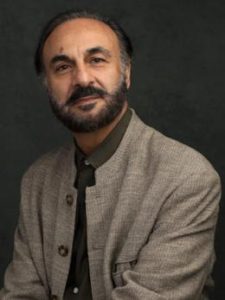October 30, 2020

A group of Iranian dissidents are demanding that Oberlin College in Ohio fire a tenured professor who formerly served as Iran’s ambassador to the United Nations, alleging that he was complicit in the regime’s crimes against humanity.
More than 600 Iranian dissidents, former political prisoners, and regime opponents wrote to Oberlin’s leadership to demand the school terminate Professor Mohammad Jafar Mahallati, a religion professor and chair of the college’s Middle East and North African studies program.
Mahallati served as Iran’s ambassador to the UN from 1987 to 1989, during the time when Iran killed thousands of dissidents over a span of several months, chiefly members of the Mojahedin-e Khalq.
Mahallati’s “role was to obfuscate and lie to the international community about mass crimes perpetrated by the Iranian regime,” the dissidents wrote.
Mahallati denies any knowledge of or role in the Iranian regime’s massacre.
Kaveh Shahrooz, an Iranian dissident and Toronto-based senior fellow at the Macdonald-Laurier Institute, organized the letter.
Mahallati has been a tenured professor at the school since 2007. After his left the Foreign Ministry in 1989, he retuned to academic life, but not to Iran. Before Oberlin, he taught at Columbia, Princeton, Yale and George-town.
In a statement sent to the Washington Free Beacon, Mahallati denied knowledge of the killings, saying his role as the regime’s ambassador did not make him privy to such information.
“I categorically deny any knowledge and therefore responsibility regarding mass executions in Iran when I was serving at the United Nations,” Mahallati said. “I was in New York the entire summer of 1988, focusing on peacemaking between Iran and Iraq [the war ended in September 1988] and did not receive any briefing regarding executions. There was not a single communication from Tehran to Iran’s UN embassy informing Iranian diplomats of those incidents.”
The professor maintains that his accusers “fail to provide a single solid document as evidence of my actual knowledge of these incidents.”
The letter from the dissidents says human-rights groups such as Amnesty International sent scores of “urgent action” notices to Iranian officials between August and December 1988, when the massacres were taking place.
“The historic record shows that Mr. Mahallati did not use his unique position at the United Nations to draw public attention to these crimes, nor did he publicly implore Iran’s government to end this criminal activity,” the letter said. “Instead, he issued statements and delivered speeches denying these crimes, refuting the extent of the executions, and disputing the validity of the names provided in the reports.”
On August 16, 1988, Amnesty International sent a letter of “Urgent Action| to the Chief Justice and Minister of Justice of Iran expressing concern that a new wave of political executions was taking place in Iran; copies were sent to the diplomatic representatives of Iran around the world.
Between August and December 1988, Amnesty International sent 14 letters of Urgent Action to the Iranian authorities and diplomatic representatives requesting that the mass executions of political prisoners be stopped.
Prof. Reynaldo Qalindo Pohl, Special Representative of the Commission on Human Rights in Iran, said in one of his reports that on November 20 and November 29, 1988, he had long discussions with Ambassador Mahallati during which Mahallati denied the allegations of mass executions.
